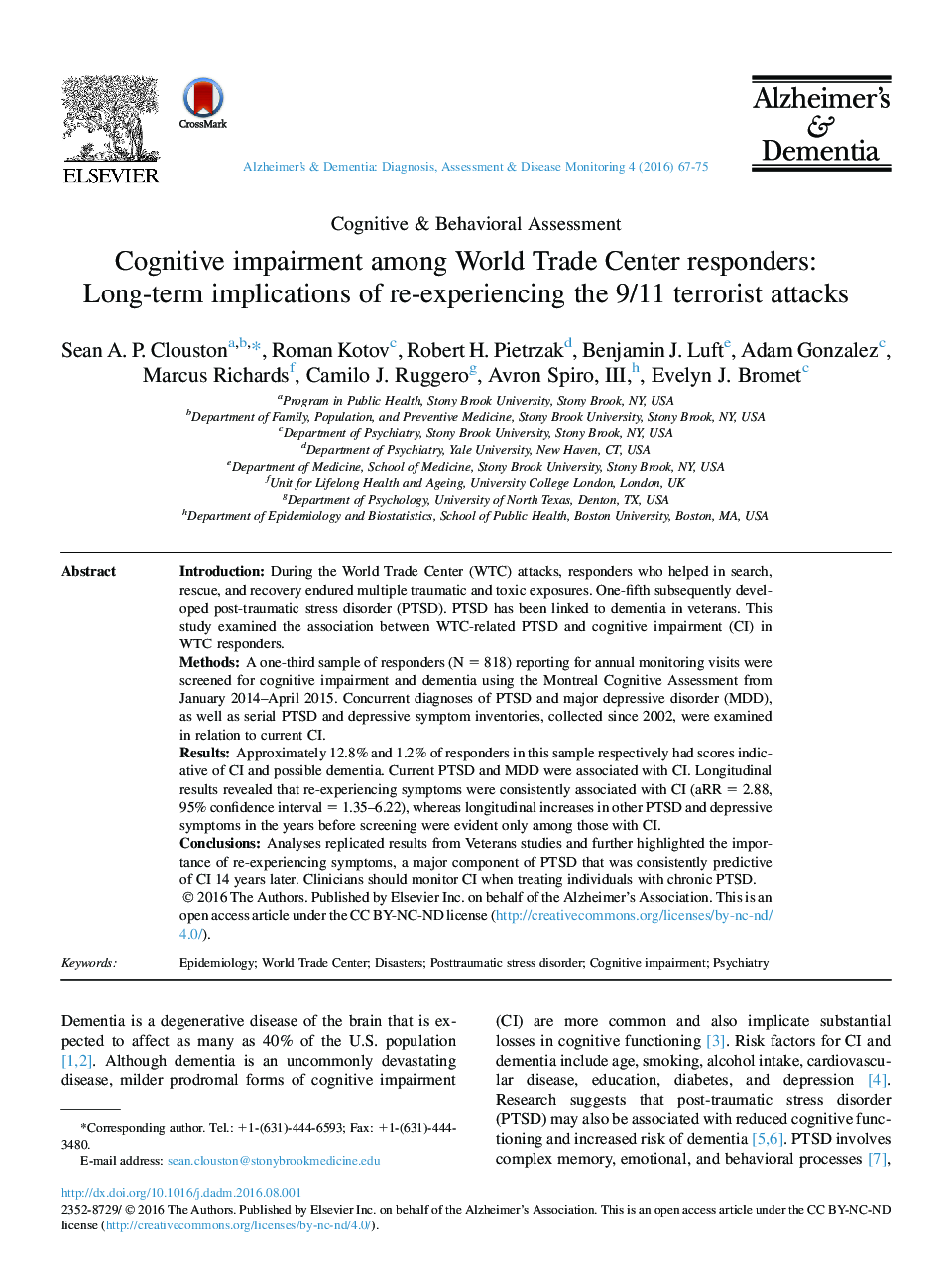| Article ID | Journal | Published Year | Pages | File Type |
|---|---|---|---|---|
| 3031976 | Alzheimer's & Dementia: Diagnosis, Assessment & Disease Monitoring | 2016 | 9 Pages |
IntroductionDuring the World Trade Center (WTC) attacks, responders who helped in search, rescue, and recovery endured multiple traumatic and toxic exposures. One-fifth subsequently developed post-traumatic stress disorder (PTSD). PTSD has been linked to dementia in veterans. This study examined the association between WTC-related PTSD and cognitive impairment (CI) in WTC responders.MethodsA one-third sample of responders (N = 818) reporting for annual monitoring visits were screened for cognitive impairment and dementia using the Montreal Cognitive Assessment from January 2014–April 2015. Concurrent diagnoses of PTSD and major depressive disorder (MDD), as well as serial PTSD and depressive symptom inventories, collected since 2002, were examined in relation to current CI.ResultsApproximately 12.8% and 1.2% of responders in this sample respectively had scores indicative of CI and possible dementia. Current PTSD and MDD were associated with CI. Longitudinal results revealed that re-experiencing symptoms were consistently associated with CI (aRR = 2.88, 95% confidence interval = 1.35–6.22), whereas longitudinal increases in other PTSD and depressive symptoms in the years before screening were evident only among those with CI.ConclusionsAnalyses replicated results from Veterans studies and further highlighted the importance of re-experiencing symptoms, a major component of PTSD that was consistently predictive of CI 14 years later. Clinicians should monitor CI when treating individuals with chronic PTSD.
